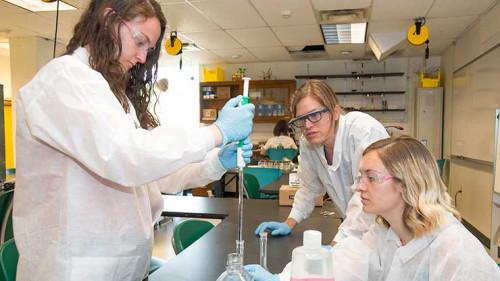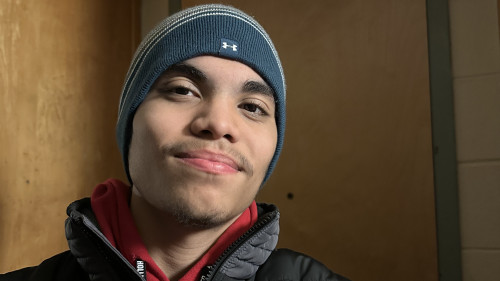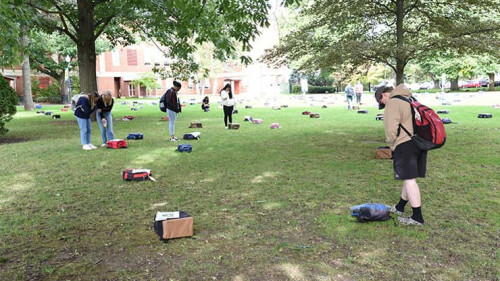
“Our work is not done and will never be done until there is change.”
Clair-Djinie Bazar ’21 called her fellow peaceful demonstrators to action on a sunny, crystal clear Saturday morning. Their September 5 gathering was named “We Speak Because They Can’t,” to honor Black lives lost to police violence.
“Racism is not a political issue that people can disagree on, but it is a human rights issue, in which all lives can't matter until Black lives matter in the eyes of not just yourself, not just your friends and families, but in the eyes of everyone, especially those are supposed to be protecting and helping us,” Bazar said. She and fellow Black Student Union leader Oluwatosin Oluyede ‘21 organized the event, which featured remarks from students, a procession across campus, and a candle lighting ceremony at the Grotto.
She hoped the demonstration would “bring awareness, put the spotlight on injustice, and facilitate discussion among the Siena community.”
Oluyede read her stunning and mournful poem “America”:
“…We should not have to beg you for our lives or tell you that our lives matter…/
We knelt and you mocked and ridiculed us./
We wore our Sunday best and you met us with hoses and dogs./
How America forgets that our pleas have played in the background as nothing more than white noise lulling you to a restful slumber….”
David DaCosta ’23 spoke of the dangers of assimilating to appease a “white is right” culture.
“The reality forced into the face of just this one culture group labeled as a minority is so undoubtedly present in the mind of a black person, that I’m sure each person of color has a story in which they were reminded of their race, not of their humanity,” he said. “I encourage those who can understand the message I imply to not only speak on your own experiences, but to also to take pride in the differences that set us apart from each other; for they are what makes any prosperous society beautiful.”
Conor Graham ’21 spoke as an ally.
“This is a historical moment for our friends of color. They have graciously stepped into the limelight to expose our national failings and to lead us all in building solutions.”
Annonda Sanders shared her personal story (read by a classmate) of having a white best friend as a child whose parents said she could no longer play with her because of her race.
“That moment on the playground is one of my earliest memories of dealing with racism. I can't tell you that things changed as we got older because they didn't…I can't tell you that when I left the small town and moved to a different one that I did not encounter prejudice in the hallways of my school because that would also be a lie.”
The following week, Siena virtually hosted activist Nyle Fort “Mourning, Faith and the Movement for Black Lives,” part of the Mission Office’s series “Strengthening the Bonds of Racial Justice.” He introduced Angela and Harrelson Selwyn Jones, the aunt and uncle of George Floyd, who was killed by police in Minneapolis police in May.
“We're witnessing the largest protests in American history,” said Fort. “We are witnessing people rising up on the streets, family members like Angela and Selwyn refusing to give death the last word.”
Selwyn said to the students listening online, “Y’all are the future of the new world. Act accordingly.”
He said his nephew George was “a good man that died in the middle of the street like an animal because of power and control, racism, anger, hatred.”
Fort cautioned the students to remember that “George Floyd was more than a hashtag. George Floyd was a human being. He had family members. He also had dreams. He had desires. He had mistakes. He had things that we all have as human beings and I want us to remember that.”

